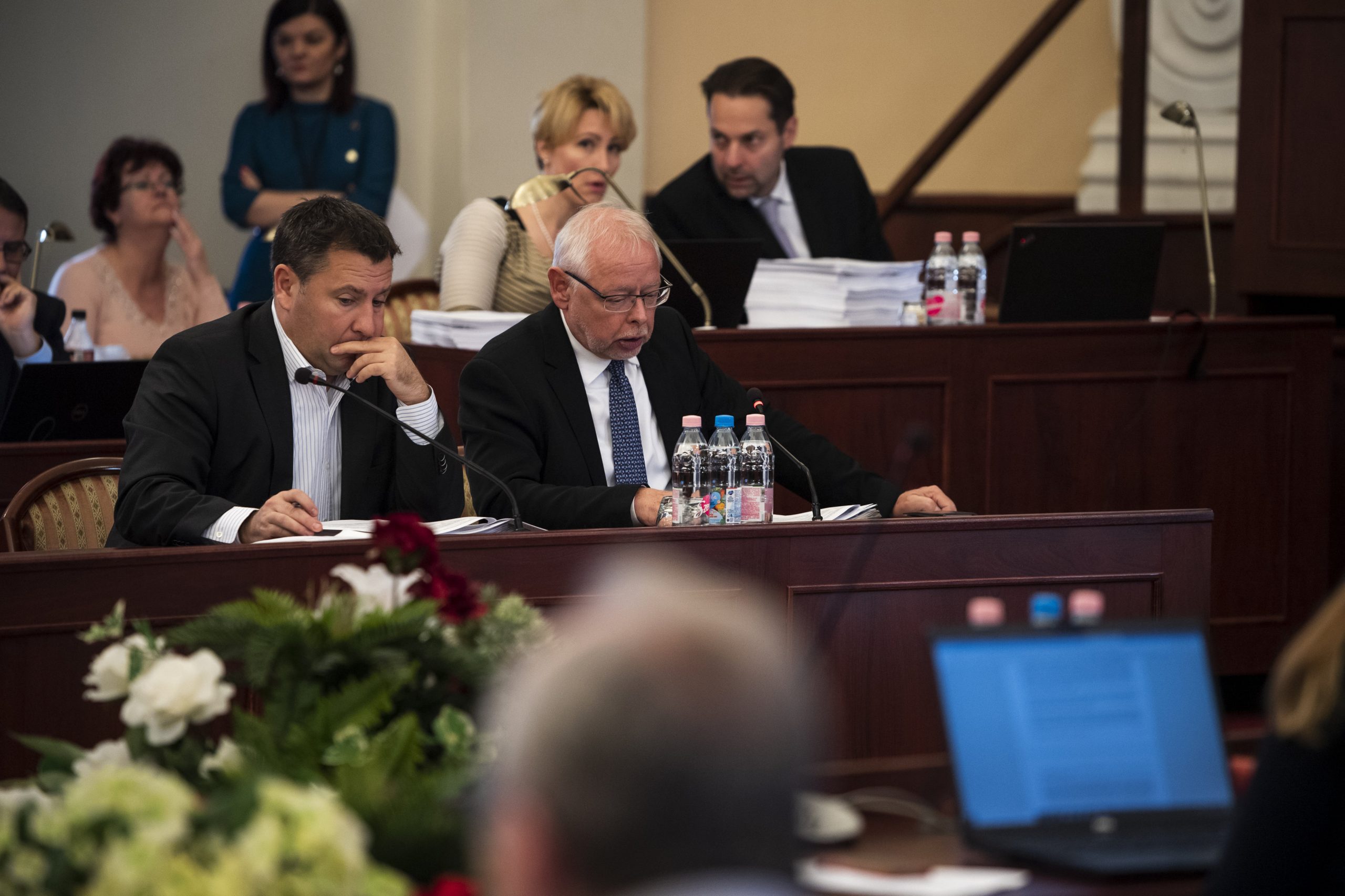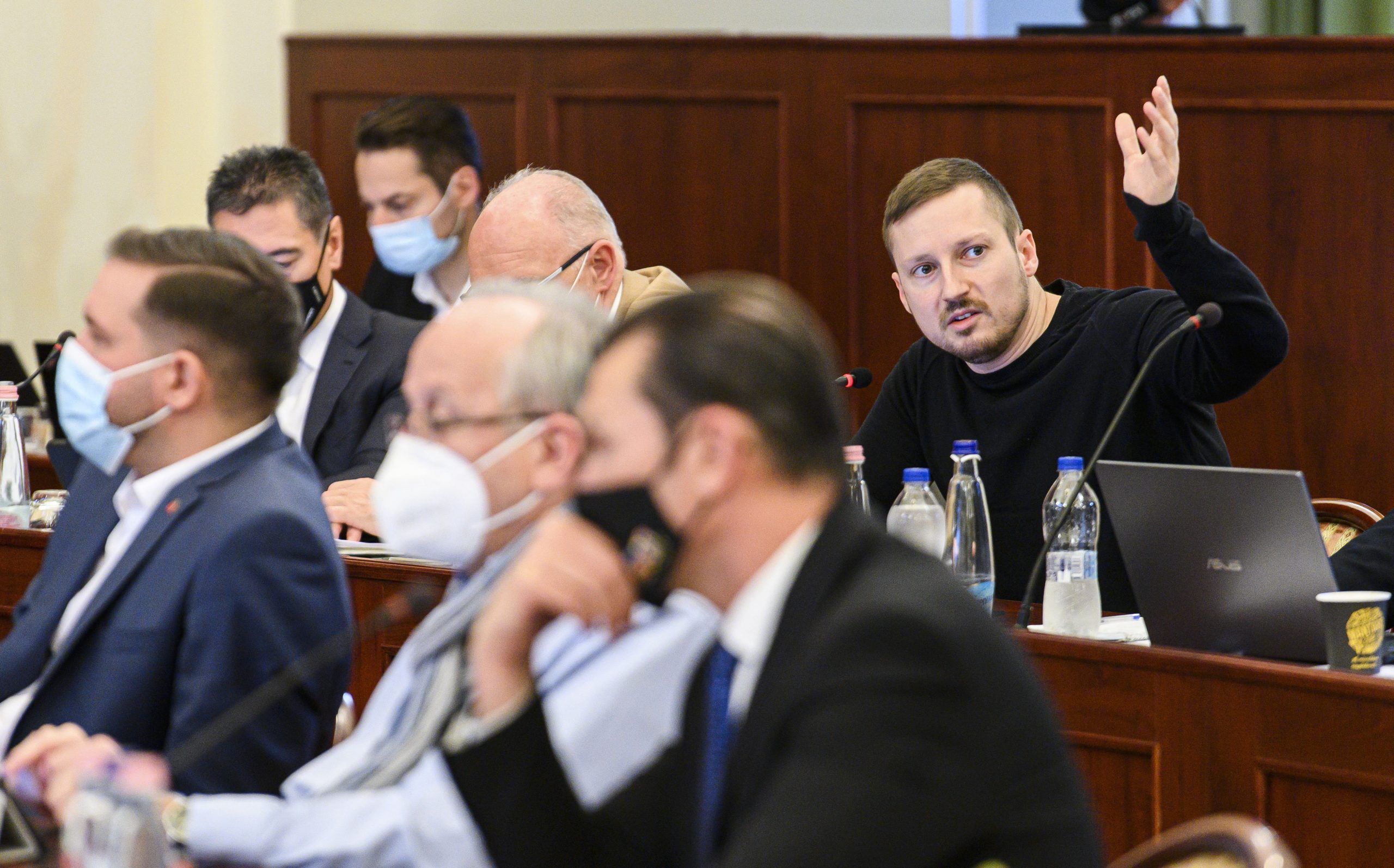
Mayor Karácsony considers it obvious that the case is only politically motivated, and that the commission system, a.k.a. corruption in City Hall, is non-existent.Continue reading

The municipal assembly of Budapest’s committee examining alleged plans to sell City Hall, produced a report on the investigations on Monday, concluding there had been no decision to sell the landmark building. The body also established that no evidence had been found about the operation of the “commission system” mentioned on the audio recordings.
The City Hall case is based on secretly-made recordings published by the Fidesz media, centering around talks about the sale of Budapest City Hall. Mayor Gergely Karácsony said a sale had only been an “option” that was taken off the table a long time ago. He also consistently denied any wrongdoing. Another part of the case was the alleged commission system (a.k.a. corruption) in practice with Budapest Municipality property sales. While ruling Fidesz politicians pressed several charges in connection with the cases, no wrongdoing has been proven yet, but a police investigation is still ongoing.
In addition, several of those involved, such as Gyula Gansperger, an important background figure in the first Orbán administration, and former KDNP deputy mayor Gábor Bagdy, who admitted to having met with one of the key figures several times, may be linked to the government’s circles as well.
The report drafted by Momentum’s Tamás Soproni, the mayor of the 6th district, said no committee member had come up with any evidence to support the alleged wrongdoings. The document also established that the municipality’s property sales practices were “entirely transparent.” No committee member was able to identify any restrictive condition in the call for proposals that would have supported the suspicion of a (directed proposal) in the audio recordings, it also established.
Soproni said he was “proud that the capital’s leadership showed its commitment to full transparency by supporting the establishment of the Investigative Commission.”
He added that they had interviewed more than 10 people “over many hours,” and on the basis of these interviews and some 5.5 GB of documents at their disposal, they came to the following conclusions:
In parallel with accepting this report, the committee also voted down an alternative one by the 16th district’s Fidesz mayor Péter Kovács, who insisted the municipal assembly’s left-wing majority “has, from the beginning, sought to deny or belittle the facts that have come to light.”
Kovács insisted on his own conclusion that “Budapest’s leadership did indeed want to sell City Hall.” The available documents, leaked recordings, and testimonies of witnesses heard by the committee all pointed to “the likelihood of plans” to sell the building.
In a statement, Kovács said former Prime Minister Gordon Bajnai had not made himself available to the committee. “It is up to the investigative authorities to find out about his role in the operations of the municipality and its property sales,” he added.
Kovács said the committee had been “doomed to failure from the beginning” as leftist deputies were in a majority and they “openly expressed their preconceptions.”
Zugló’s (14th district) Socialist (MSZP) mayor Csaba Horváth, on the other hand, commented that Kovács’s report was not objective and could not be accepted, while Soproni accused Kovács of peddling “government propaganda.”
After his hearing last week, Karácsony announced that instead of a “fake case built up by Fidesz’s propaganda machine,” the Budapest connections of the Schadl-Völner corruption case should be investigated.
Press reports recently revealed that in the last five years, the President of the Hungarian Court Bailiffs Chamber (MBVK), György Schadl, who is the key figure in the recently revealed corruption case of former deputy justice minister Pál Völner (Fidesz), bought several properties across Hungary. Karácsony claims two purchases, brokered with Fidesz-led Budapest districts (in the 5th district, led by Péter Szentgyörgyvölgyi) before the opposition took over the Municipality, might be suspicious since the City Council was unable to exercise its right to pre-purchase the buildings. Karácsony now wants to set up an investigative committee in that case, too.
featured image: Tamás Soproni in the Budapest Assembly; via Zsolt Szigetváry/MTI